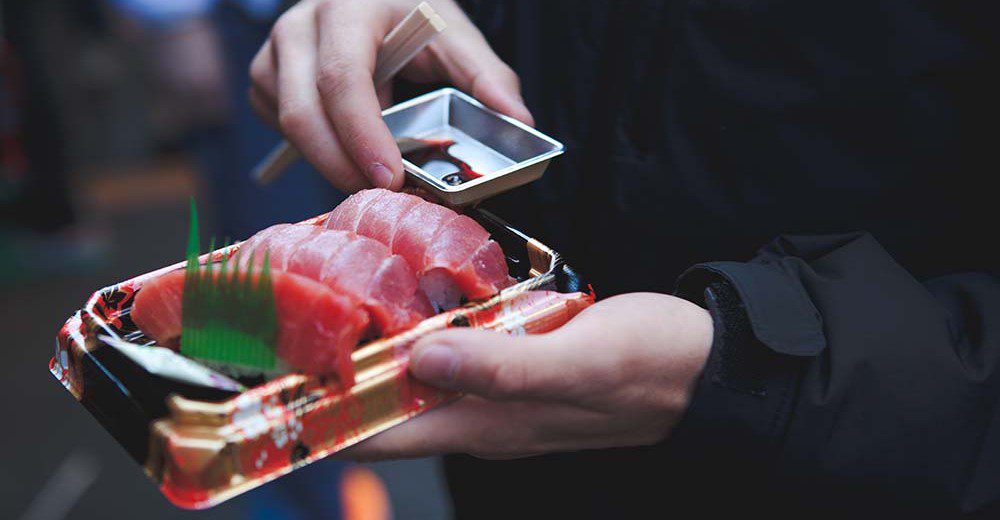Japanese food, mmmm picture yourself biting into fresh sushi, slurping a warm udon soup, enjoying flavoursome okonomiyaki and working your way through crunchy tempura.
Salivating yet?

Japanese food is so tasty that it, along with snow, culture and history, is attracting more and more Aussies to the Land of the Rising Sun.
Hoping to build on that hungry market and tempt taste buds around the country, Japan’s tourism leaders recently teamed up with MasterChef Australia. Judges and contestants travelled to Japan when they experimented with different flavours, learned local cooking methods and showcased the culinary scene.
Speaking about the campaign last month, Japan National Tourism Organization’s Toni Fan said the tie-up was an opportunity to promote the “culinary delights” to an Australian audience.
“Food in Japan is different to what’s available in Australia. The fresh produce doesn’t taste the same and a lot of restaurants specialise in one specific food so they’re experts at making it and it’s going to taste good.”
Toni Fan, Japan National Tourism Organization Media and Marketing Assistant Manager

The Japan National Tourism Organization team with Adam Liaw.
Fan continued, saying there was a lot for Australian audiences to learn from the one-week MasterChef special because each prefecture in Japan serves different kinds food.
“Even cities next to each other with have their own specialties,” she explained. “You can travel from north to south and not eat the same food.”
However, despite how tasty Japanese food may be, Fan admits that Australians sometimes get a little self conscious about their mannerisms and trying new dishes.
To help conquer those fears, Fan along with season two MasterChef winner Adam Liaw offer their pro-tips for eating in Japan:
Don’t pour soy sauce directly over white rice

Image: lan Pham
“I know it’s plain, but white rice usually comes with another dish to balance out the flavours,” Fan said.
Don’t play with your chopsticks

Image: Foodie Factor/Unsplash
“Don’t use them to pass food, stab things or push food around,” Fan added.
Pour other people’s drinks

Image: Toa Heftiba
“If you want to impress locals, pour everyone a drink before you pour your own,” Fan said. “It’s considered nice also if their glass is empty, grab a drink and fill it.”
Don’t plan too far in advance

Image: Redd Angelo/Unsplash
Book a restaurant for every second day in Japan and think about what you want to eat in between,” Liaw said. “Sometimes you’ll want to try something because of its reputation and other times because it’s there and it’s what you feel like.”
Do a little foodie research

Image: Kuba Boski/Unsplash
“Learn about the food before you go – their dishes are not that hard to make, but understand the ingredients and you can choose your food on a dish-by-dish basis,” Liaw said.
Don’t worry about etiquette

Image: Josh Wilburne/Unsplash
“They don’t expect you to be fluent in Japanese eating. So just be comfortable,” Liaw said.
BUT don’t wear perfume

Image: Thien Dang/Unsplash
“Don’t wear perfume or aftershave when you go to eat at a restaurant because Japanese believe it’ll affect your ability to smell the food.”
And finally, just try it

Image: Matthew Hamilton/Unsplash
Just as long as you’re not allergic to anything, give it a go, both Liaw and Fan stressed.
READ: GEISHAS: 6 facts about the traditional Japanese female entertainers
READ: SUMO WRESTLING: Everything you need to know about the Japanese sport

